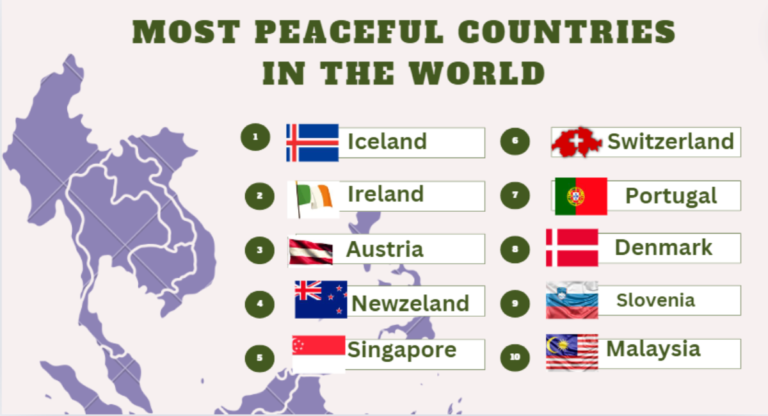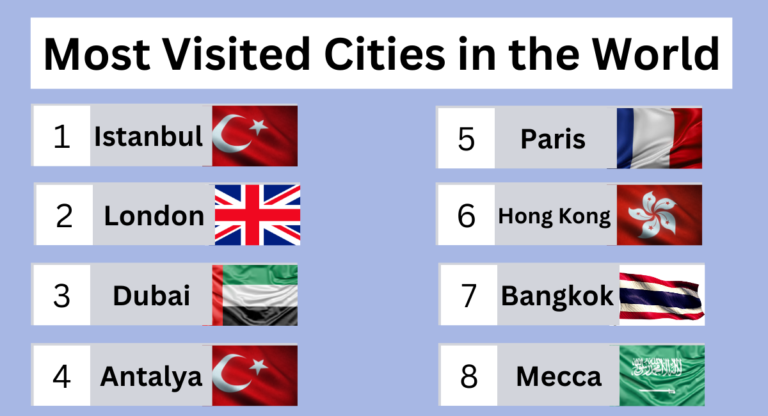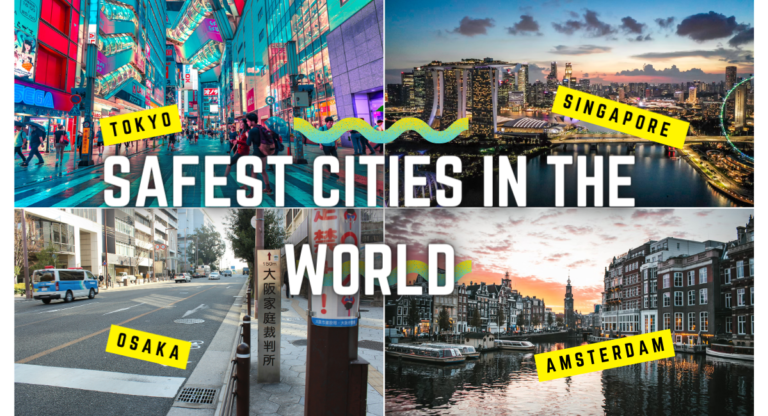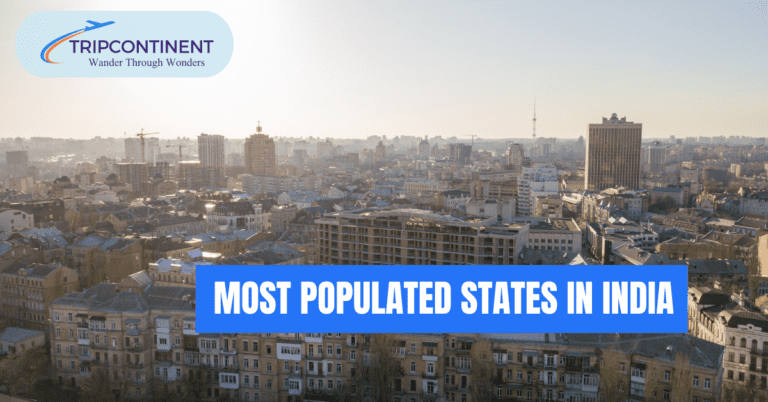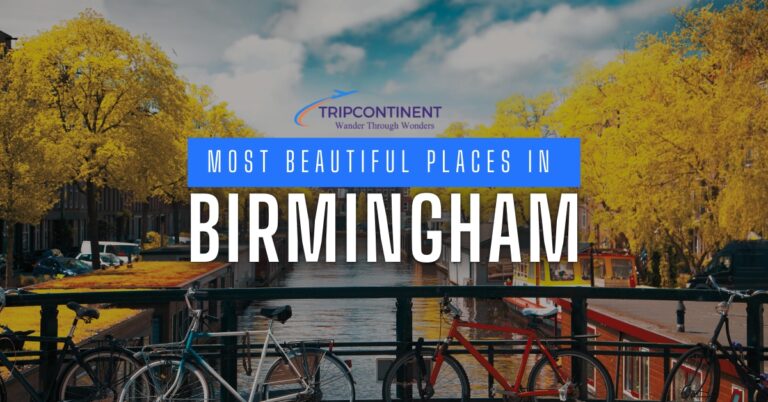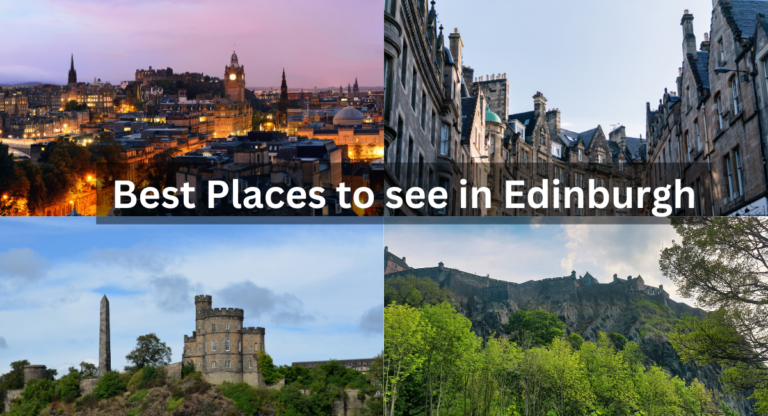Which Are the Top 11 Richest Cities in Africa in 2024?
Africa is the most populous and second largest continent in the world, after Asia. This continent holds a huge proportion of the world’s natural resources, and also boasts some of the richest cities globally. From Johannesburg and Cape Town to Nairobi and Lagos, Durban and Casablanca, each urban center shines in terms of wealth and prosperity while showcasing unique histories and thriving communities. Johannesburg, the city of Gold, comes at top among all the African wealthiest cities, where 12,300 millionaires thrive.
In this blog, we’ll discover the top richest cities of Africa which offer a glimpse into the continent’s dynamic economic tapestry.
List of the Top 11 Most Richest Cities in Africa
- Johannesburg
- Cape Town
- Cairo
- Nairobi
- Lagos
- Cape Winelands
- Durban, Umhlanga & Ballito
- The Garden Route
- Casablanca
- Pretoria
- Accra
1. Johannesburg
Johannesburg is famous as the economic powerhouse of South Africa, and southern Africa. The concentration of businesses and millionaires make it the richest African city. It is the financial capital of South Africa, and home to 74 percent of Corporate Headquarters.
The city is a hub of mining, manufacturing, and finance. Mining makes the city a top exchange earner, as the mining-centered companies invest in other activities.
Johannesburg Securities Exchange, the only stock exchange of South Africa, is ranked among the world’s top 20 exchanges in terms of market capitalization. According to 2021 estimation, the GDP of Johhensburg was recorded as 419 billion USD.
Renowned as the City of Gold, Johannesburg also comprises the natural resources of iron, ore, platinum, chromium, manganese, copper, uranium, silver, beryllium, and titanium. These natural resources significantly contribute to its economy.
Several sectors such as technology, real estate, and banking serve as a magnet for wealth creation in Africa, offering opportunities for entrepreneurs, investors, and multinational corporations.
Beyond the economic strength, Johannesburg has grown into a world-class city. Its varied landscape ranges from bushveld, grasslands, forests, and breathtaking peaks to beautiful beaches and coastal wetlands. The captivating landscape attracts visitors, resulting in stimulating income generation, creating employment opportunities, and promoting the overall growth of small businesses.
Read Also: Which Are the Most Populated Countries in Africa?
2. Cape Town
Cape Town, the entrepreneurial city of South Africa, boasts information technology companies and accounts for about 71% of the western Cap’s activity through three most significant sectors including property financing and business services and tech innovations. It is the legislative capital of South Africa, following Johannesburg closely with 7,400 millionaires and one billionaire.
Cape Town is the second wealthiest city in Africa, with a GDP of around $131 billion. The city is renowned for its natural beauty, with the iconic Table Mountain, pristine beaches, and stunning vineyards.
It is a major hub for finance, technology, and tourism, attracting many high-net-worth individuals and multinational corporations. The city is home to a thriving real estate market, luxury retail, and a growing startup ecosystem. Cape Town also serves as the legislative capital of South Africa, contributing to its economic prominence.
3. Cairo
Cairo, the capital of Egypt, is the third richest city in Africa. With a GDP of around $138 billion, Cairo is a major center for finance, trade, and industry in the region. The city is home to the Egyptian Exchange, one of the oldest stock exchanges in the Middle East and Africa.
The city also boasts a thriving tourism industry, drawing visitors to its ancient monuments, such as the Pyramids of Giza and the Sphinx.
The city’s strategic location, coupled with its well-developed infrastructure and skilled workforce, make it a hub for multinational corporations and a magnet for foreign investment.
4. Nairobi
Nairobi, the capital of Kenya, is the fourth wealthiest city in Africa, with a GDP of approximately $93 billion. This most innovative African city is home to 4,400 millionaires and 2 billionaires.
The city is a regional hub for finance, technology, and innovation, with a flourishing startup ecosystem. Nairobi is home to the Nairobi Securities Exchange, one of the largest stock exchanges in Africa.
The city also serves as the base for many multinational companies and international organizations, such as the United Nations Environment Programme (UNEP) and the United Nations Office at Nairobi (UNON).
Nairobi’s vibrant culture, diverse population, and natural attractions, including the Nairobi National Park, contribute to its economic prosperity.
Read Also: Which Are the Landlocked Countries in Africa?
5. Lagos
Lagos, the commercial capital of Nigeria, is the fifth richest city in Africa, with a GDP estimated at around $91 billion. As the largest city in Africa, Lagos is a major financial and economic center, with a thriving banking, manufacturing, and trade sectors.
The city is home to the Nigerian Stock Exchange, one of the largest stock exchanges in Africa. Lagos also boasts a rapidly growing technology and startup ecosystem, with the emergence of numerous tech hubs and incubators.
The city’s strategic location, large population, and abundant natural resources make it a hub for foreign investment and a significant contributor to the economic growth of Nigeria and the West African region.
6. Cape Winelands
The Cape Winelands region, located in the Western Cape province of South Africa, is the sixth wealthiest area in Africa. This picturesque region, known for its world-class vineyards, gourmet cuisine, and stunning natural landscapes, has a GDP of around $4.5 billion.
The wine industry is the primary driver of the Cape Winelands’ economy, with numerous award-winning wineries and wine tourism contributing significantly to the region’s prosperity.
The area is also home to several affluent towns, such as Stellenbosch, Franschhoek, and Paarl, which attract high-net-worth individuals and investors seeking a lifestyle of luxury and exclusivity.
7. Durban, Umhlanga & Ballito
The coastal region of Durban, Umhlanga, and Ballito, located in the KwaZulu-Natal province of South Africa, is the seventh wealthiest area in Africa, with a combined GDP of approximately $40 billion.
Durban is a major port city and a hub for tourism, with its golden beaches, warm weather, and thriving hospitality industry. Umhlanga and Ballito, on the other hand, are affluent suburbs known for their upscale residential developments, luxury real estate, and high-end retail and dining options.
This coastal region attracts a significant number of wealthy individuals and families, contributing to its economic prosperity.
8. The Garden Route
The Garden Route, a scenic coastal region in South Africa’s Western Cape province, is the eighth wealthiest area in Africa, with a GDP of around $3.2 billion.
The region is renowned for its breathtaking natural beauty, including mountains, forests, and beaches, which have made it a popular destination for both domestic and international tourists.
The Garden Route is home to several affluent towns, such as Knysna, Plettenberg Bay, and George, which have attracted wealthy retirees, investors, and entrepreneurs seeking a high quality of life. The region’s thriving tourism industry, coupled with its growing real estate and agricultural sectors, contribute to its economic prosperity.
9. Casablanca
Casablanca, the largest city in Morocco, is the ninth richest city in Africa, with a GDP of approximately $52 billion. As the commercial and financial hub of Morocco, Casablanca is a major center for banking, insurance, and trade.
The city is home to the Casablanca Stock Exchange, one of the largest stock exchanges in Africa. Casablanca also serves as a hub for multinational corporations, with many establishing their regional headquarters in the city.
The city’s strategic location, well-developed infrastructure, and educated workforce make it an attractive destination for foreign investment and a key driver of Morocco’s economic growth.
Read Also: Which Are the Most Populated Cities in Africa?
10. Pretoria
Pretoria, the administrative capital of South Africa, is the tenth wealthiest city in Africa, with a GDP of around $36 billion. The city is a hub for government and diplomatic activities, hosting the Union Buildings, the official seat of the South African government.
It is also a center for education, with several prestigious universities and research institutions. The city’s economy is diversified, with significant contributions from the automotive, technology, and financial services sectors.
Pretoria’s status as a political and administrative center, coupled with its well-developed infrastructure and skilled workforce, make it an attractive destination for both domestic and international investment.
11. Accra
Accra, the capital and largest city of Ghana, is the eleventh wealthiest city in Africa, with a GDP of approximately $34 billion. As the economic and political center of Ghana, Accra is a hub for finance, telecommunications, and information technology.
The city is home to the Ghana Stock Exchange, one of the most active stock exchanges in West Africa. Accra also serves as a regional headquarters for many multinational corporations, attracted by the city’s strategic location, stable political environment, and growing middle class.
The city’s thriving real estate, hospitality, and retail sectors further contribute to its economic prosperity and make it a magnet for foreign investment in the West African region.
Table of Wealthiest Urban Centers in Africa
| No. | Richest Cities | Names of Countries | No. of Millionaires | No. of Billionaires |
| 1. | Johannesburg | South Africa | 12,300 | 2 |
| 2. | Cape Town | South Africa | 7,400 | 1 |
| 3. | Cairo | Egypt | 7,200 | 4 |
| 4. | Nairobi | Kenya | 4,400 | 0 |
| 5. | Lagos | Nigeria | 4,200 | 2 |
| 6. | Cape Winelands | South Africa | 3,600 | 2 |
| 7. | Durban, Umhlanga & Ballito | South Africa | 3,500 | 0 |
| 8. | The Garden Route | South Africa | 3,200 | 0 |
| 9. | Casablanca | Morocco | 2,800 | 1 |
| 10. | Pretoria | South Africa | 2,100 | 1 |
| 11. | Accra | Ghana | 1,900 | 0 |
Conclusion
Africa comprises some of the wealthiest urban centers. From the financial powerhouse of Johannesburg to the natural beauty and tourism hubs of Cape Town and the Garden Route, these urban centers have positioned themselves as magnets for both domestic and international investment. The diversity of these richest African cities, ranging from established financial centers to emerging tech and startup hubs, highlights the continent’s dynamic economic transformation.
FAQ’s
Which City Has the Biggest Economy in Africa?
Johannesburg is ranked at top among the African richest urban centers. This city has a thriving economy with approximately 12,300 millionaires.
What Made Some African Cities Very Rich and Powerful?
The extensive trade network system makes the African cities wealthier. This continent upholds 40 percent of the world’s gold and up to 90 percent of chromium and platinum. Some parts of the African continent used to have close relationships with Arab kingdoms. After the Ottoman Empire, the Africans started converting to Islam in large numbers.
Where Is the Most Expensive City in Africa?
Addis Ababa, situated in Ethiopia, is considered as the most expensive city of Africa, according to 2024 estimation of consumer goods prices.
Which Is the Largest City in Africa by Population?
When talking about the African continent in terms of population, Cairo is ranked at top with 22 million inhabitants.
What Is the Busiest City in Africa?
Lagos comprises the busiest ports and accounts for above 60% of the industrial and commercial ventures of Nigeria.

I’m Sophia Jones, an adventurer at heart from New York City, USA. I live for travel and exploration, always eager to discover new places, meet fascinating people, and try out diverse cuisines. Over the past few years, I’ve traveled to numerous countries, immersing myself in different cultures and creating unforgettable memories.

